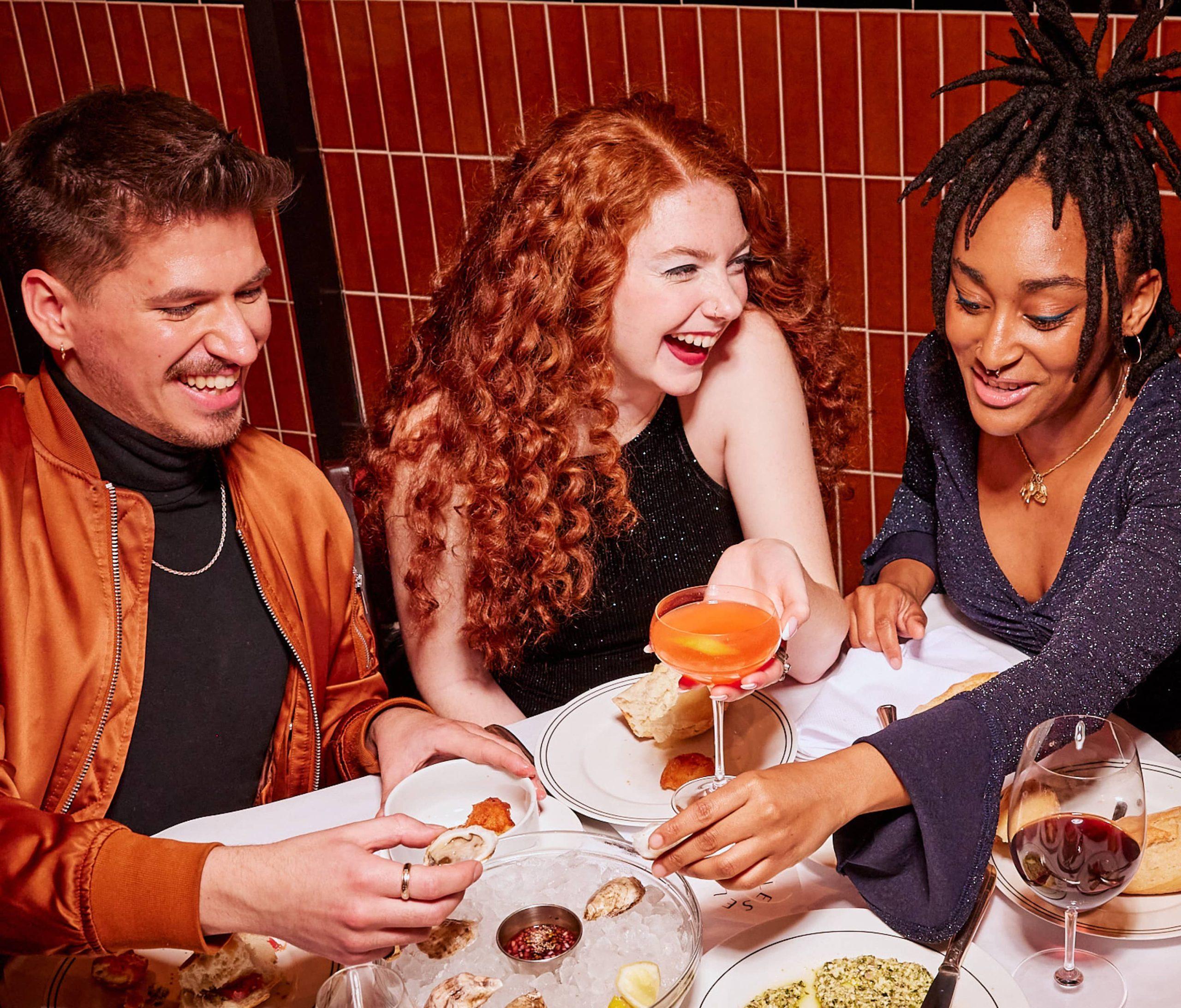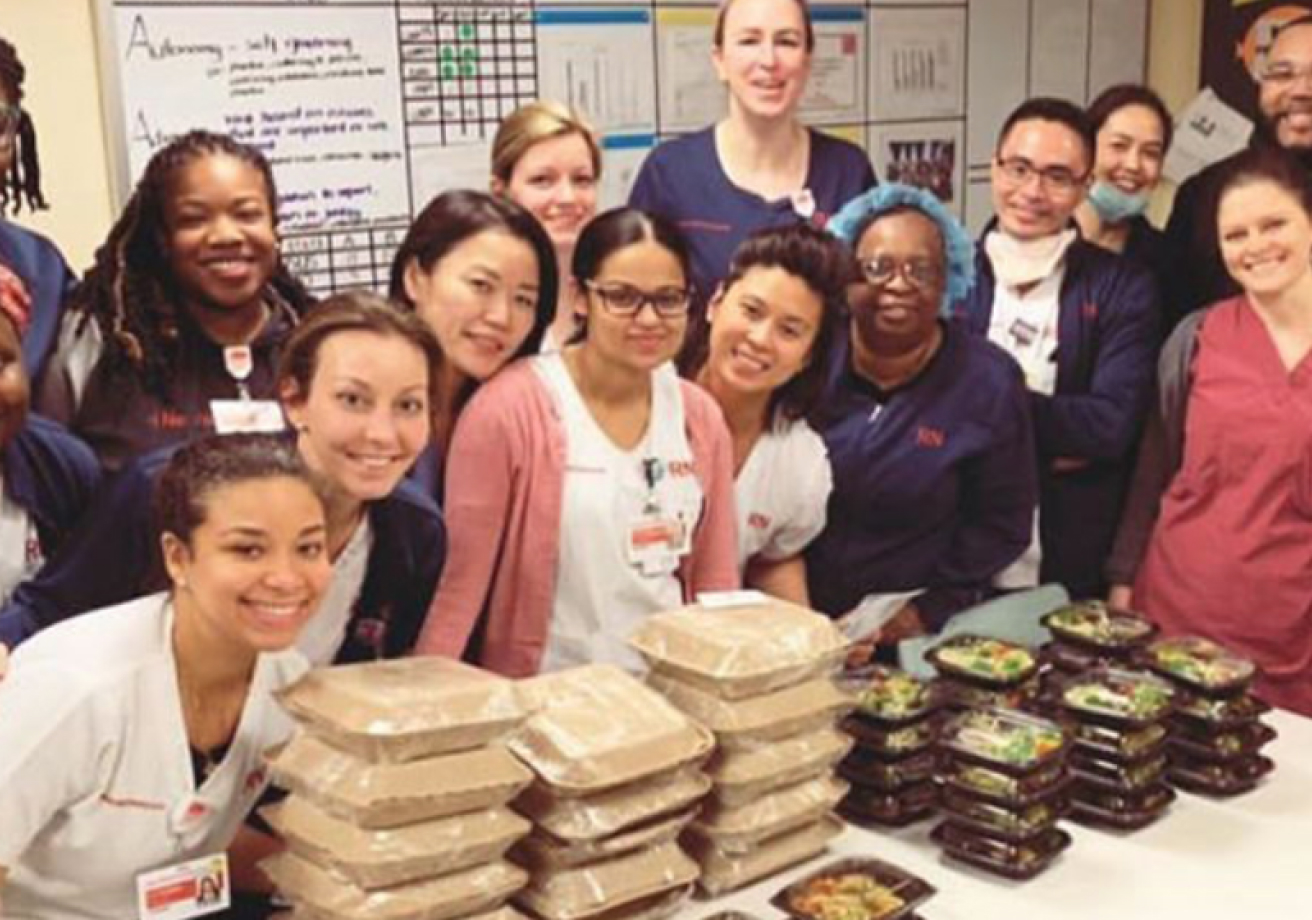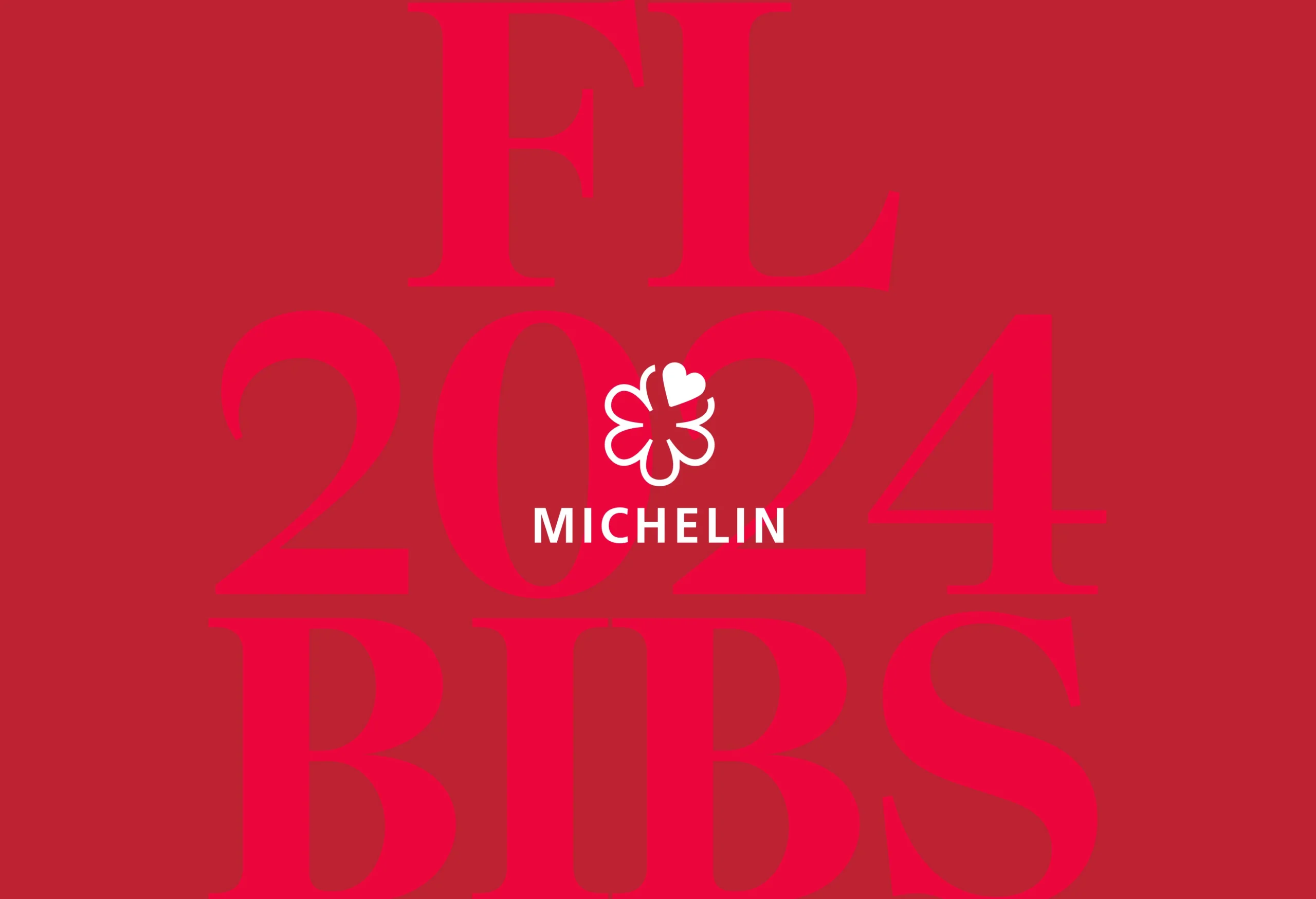Editor’s note: During this uncertain time, OpenTable is working around the clock on ways to support restaurants. Currently, we’re heavily promoting fundraisers, delivery, gift cards, and restaurants-turned-groceries; offering fee relief to impacted restaurants; and working with local restaurant associations. But we also want to highlight some of the great actions restaurants are taking to continue to support their community. If you have an example of what you or a restaurant you love is doing, write to us at blog@opentable.com for a chance to be featured.
As the COVID-19 pandemic continues, restaurants are still doing what they always do: taking care of their communities. Many Americans are in need of food, and restaurants around the country are stepping up to help. They’re giving free food to medical workers on the frontlines, laid-off restaurant staff and their families, and basically anyone else in need.
Donations, grants, and fundraising are keeping these programs going, providing not only meals to the hungry but also restaurant jobs for those who have been laid off or furloughed. Below are four restaurants around the country doing this type of work, how they make it happen, and what they need to keep it going.
For a full list of OpenTable restaurants feeding those in need, head here.
Feeding medical workers
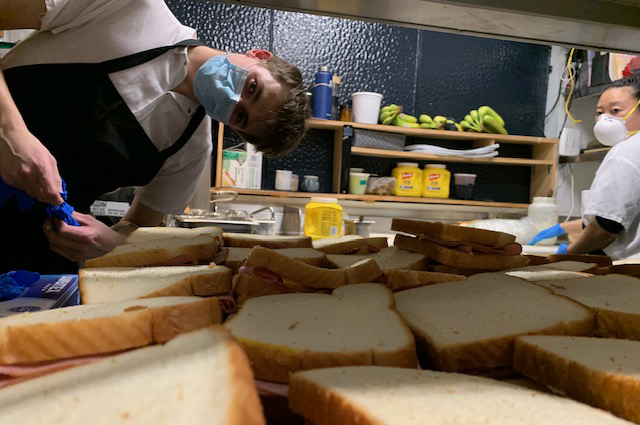
One of the most heartwarming stories to come out of the COVID-19 pandemic is how restaurants have started feeding frontline medical workers for free. Several organizations have popped up that collect donations, distribute them to restaurants, and connect those restaurants with hospitals in need.
One such organization, Frontline Foods, has dozens of restaurants making meals for hospital workers. A mix of hospitality workers formed the group, which now has chapters across the country, from Maine to California. San Francisco fine dining restaurant Nightbird is one signed on through Frontline Foods, cooking hundreds of meals a week for medical workers.
Owner Kim Alter has not only been able to do good, but also keep a few employees working and paid through the program. She and her staff make meals that align with Nightbird’s farm-fresh Californian ethos, such as barbecue chicken with mashed potatoes, corn bread, and vegetables sauteed with apples or flank steak with potatoes, asparagus, housemade bread, and little gem salad with seeds and creamy garlic dressing.
“I’m trying to utilize the same farms and purveyors that we normally use, so the whole cycle still continues,” Alter says. “But we also want doctors to feel comforted.”
Others have taken it upon themselves to raise the necessary funds to feed medical workers. Loulou, a French bistro in New York City, set up a GoFundMe, and every time another $1,000 is raised, co-owner Mathias Van Leyden says his chef can make 40 meals for intensive care unit staff. They’ve delivered short ribs, grilled branzino, and tagliatelle with truffles.
“It costs a little more money for us, but it’s nice to deliver some better-quality food for these people who work so hard,” Van Leyden says.
Through these meals and doing takeout, he’s been able to keep his chef and a bartender on staff. He decided to go the route of fundraising himself because he “figured my friends and network would donate if I did it myself than to somebody else in order to have more impact.”
Both restaurateurs say the shift to an entirely new business model has not been easy, but worth it.
“It’s hard! I thought I couldn’t work any harder, and obviously I can. We basically had to make a new restaurant; we’re like a soup kitchen in a week, and it’s crazy,” Alter says. “I’m not making money, but at least I’m not bleeding money. So it’s helping a lot.”
Contribute to Loulou’s fundraiser here.
Contribute to Frontline Foods here.
Feeding laid-off restaurant employees
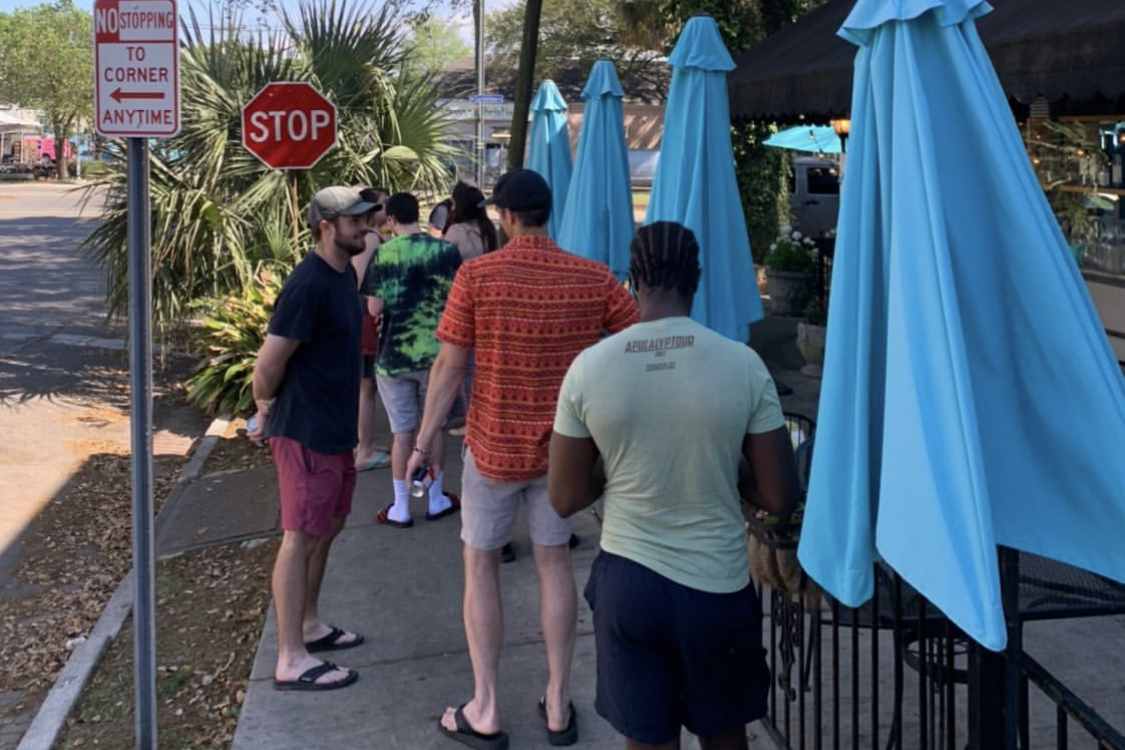
With three million restaurant workers already laid off since March 1, money needs for that group are at an all-time high. So former Top Chef contestant Isaac Toups stepped in to help, and he’s been cooking free meals for anyone who’s hungry and can’t afford a meal, no questions asked — to the tune of 400 meals a day out of his New Orleans Cajun restaurant Toups Meatery.
“It happened organically. We decided that even though we can’t keep hourly workers on, we’re going to feed everyone. We normally make family meal every day, twice a day for 10 people, so we said, ‘Why don’t we make 20 meals every day, and we’ll feed everybody we had to lay off.’”
From there the meals ballooned, and Toups says he’s now feeding members of the service industry, some hospital workers, and retirement homes. “It’s funny because Top Chef helped me out with this. I walk in every day, look at the food I have, and am like, ‘OK, I have five hours and these ingredients to feed 500 people — go!’” he says.
Food comes from donations from individuals, other restaurants, and companies. Purveyors have sent over beer and wine, a candy company gave goodies for Easter baskets for a women’s shelter, and restaurants donated cases of food they weren’t using.
“We’re gonna do this until there’s no food, no money, or they just shut us down completely,” Toups says. “This is just what you do. People are hungry, and we need to feed them. That’s my job.”
Contribute to Toups Meatery’s work here.
Feeding those in need
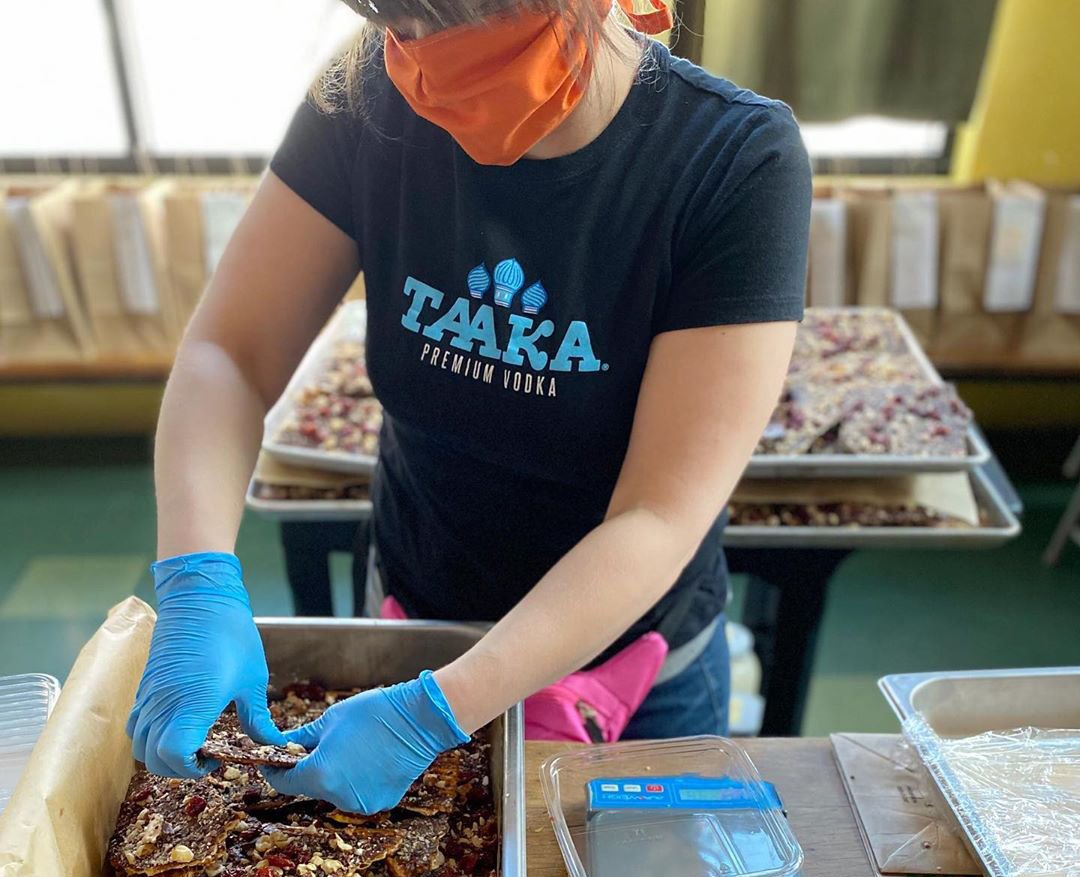
With schools closed and food banks facing overwhelming demand, restaurants are helping to fill in the gaps of those hungry and in need. Renowned Portland Eastern European restaurant Kachka has several different programs going to feed schoolchildren, women’s shelters, and the general public.
Through nonprofit Stone Soup, Kachka is giving meals to 80 people a week at a local women’s shelter that was formed for this crisis. Cabbage rolls, walnut mushroom curry, and borscht are some of the meals co-owner Bonnie Morales has been sending over. The restaurant is also offering free meals to kids with the help of local corporate sponsorship. An online system will be set up shortly to help facilitate that.
“We’re not making money, but it feels nice to do something,” she says. “As long as we feel we’re doing more good than harm, we’re going to continue to do it.”
Like the other restaurants, these programs not only feed the needy, but also help keep her business afloat. Morales went from 57 employees pre-coronavirus to now 11.
“It’s just my husband and I that own this. We don’t have any investors, so if we go down, there’s no one there for us,” she says. “It feels better to do something than to do nothing.”
This work is in addition to keeping her regular business going. Morales opened a Kachka general store late last year, and has pivoted to selling groceries and supplies online through that, as well as reheatable meals. She’s also still feeding customers during holidays like Passover.
“There have been a lot of sweet, heartfelt communications from customers that make us feel good about our choice to continue to operate,” Morales says. She shares a story about three generations of one family who came to pick up the same Passover meal to celebrate in the same way together, but from their respective homes. “That’s more feeding people’s souls than their needs.”
